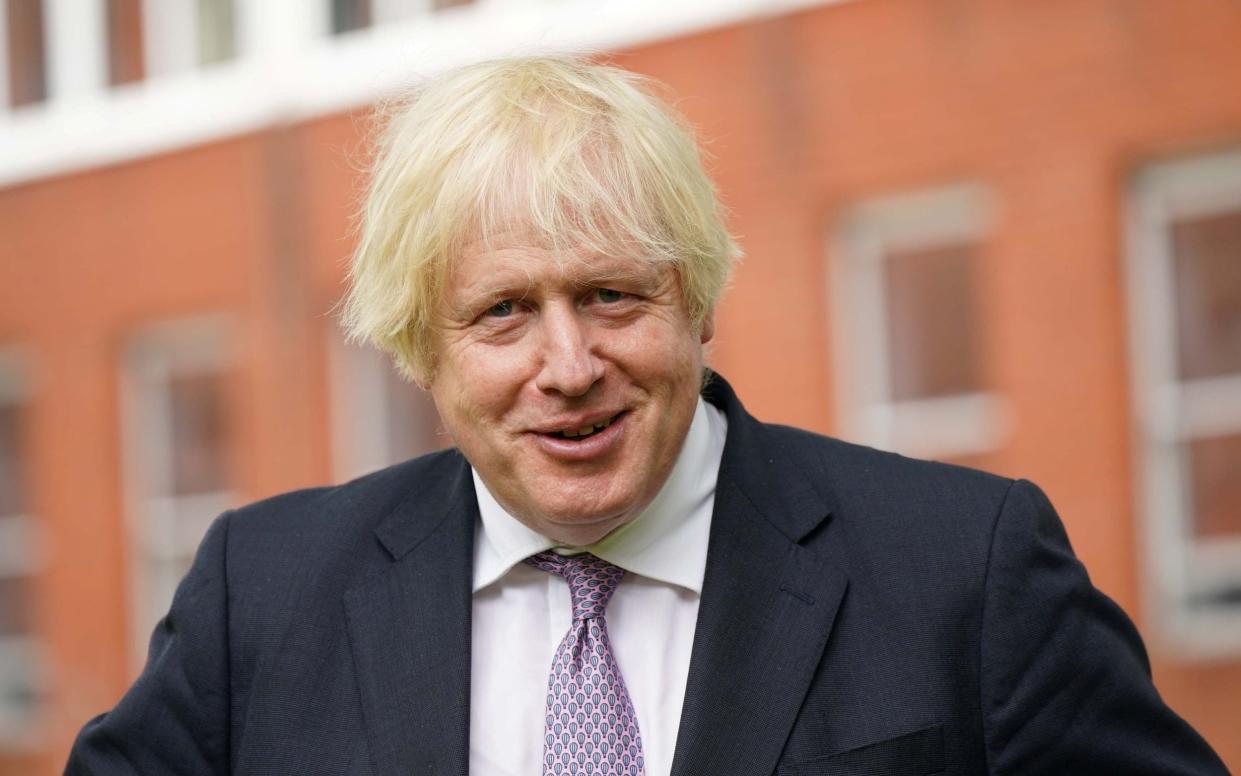Pensions triple lock: MPs canvassed for opinions on dropping manifesto commitment

The suspension of the pensions triple lock appears to be moving closer after it emerged last night that Conservative MPs are privately being canvassed on their views on dropping the manifesto commitment.
The Telegraph can disclose that figures in the Department for Work and Pensions have started sounding out MPs as to whether they are supportive of ditching the Government guarantee on pensions increases.
MPs believe the decision to reach out to them is a clear sign that a temporary suspension now seems increasingly likely.
“It was very much an ‘if we do this, what’s your opinion,’” said one well-placed source, who suggested that the Government was now effectively conducting a “straw poll” of Conservative MPs.
It comes amid calls from a growing number of senior ministers for the triple lock, which Boris Johnson vowed to maintain during the 2019 election, to be suspended this year.
At present, the state pension increases each year in line with the Consumer Prices Index (CPI), a measure of inflation, increasing average wages, or 2.5 per cent, whichever is highest.
But due to earnings being artificially boosted as a result of millions of workers returning from furlough, the state pension is currently on course to increase by as much as eight per cent.
At the same time, working taxpayers now face the prospect of a one per cent hike in national insurance contributions in order to fund the Prime Minister’s £10bn a year social care reforms.
The prospect of pensioners, who do not pay national insurance, receiving a windfall while national insurance is increased for workers is also seen as “grossly unfair” by a number of Cabinet ministers.
Over the weekend The Telegraph also disclosed that discussions between the Treasury and No 10 have been held in recent weeks about suspending the guarantee on pension increases alongside raising NICs.
While the Treasury insists that a final decision will not be taken until the Autumn, when the latest data on average earnings is published, sources have revealed that the process of gauging the level of the support for the move among Tory MPs has already begun.
Divided opinions
Opinion is understood to be split, with one senior backbencher opposed to suspending the triple lock telling this newspaper they believed that ministers were ignoring the potential impact on poorer pensioners.
Taking aim at the Treasury, they added: “I’m really worried about getting rid of it because the Treasury seems to think that every pensioner lives in Surrey in a mansion.
“Actually if you look at the pensioners in my constituency they are not, even with the triple lock, living on a lot of money. I would like to see any minister trying to live on that.
“The way it’s being presented is these are rich pensioners, but in my constituency its people living on £15,000 a year in a council house who depend on it for a basic standard of living.
“We made a serious commitment in the manifesto. In 2017 when we said we were going to get rid of it had a massive impact on our vote.”
However, another suggested that there was widespread support among colleagues for ditching the commitment, stating: “I was never in favour of the triple lock and the cost involved in doing it is enormous. The working age have been squeezed while pensions have done the opposite.”
A third MP said they could potentially support the Treasury tampering with the triple lock to account for the artificial skewing of earnings during the pandemic.
But they warned that abandoning the commitment altogether could prompt a significant backlash from MPs and voters, adding: “We need a sensible conversation about the triple lock.
“Rishi has a balancing act to do in the Budget, which means we need to maintain the triple lock in some form but consider if the raise should really be 8 per cent. Can we defend that while only giving nurses a 3 per cent rise for example.
“I think voters understand there are hard choices to be made.”

 Yahoo News
Yahoo News 
